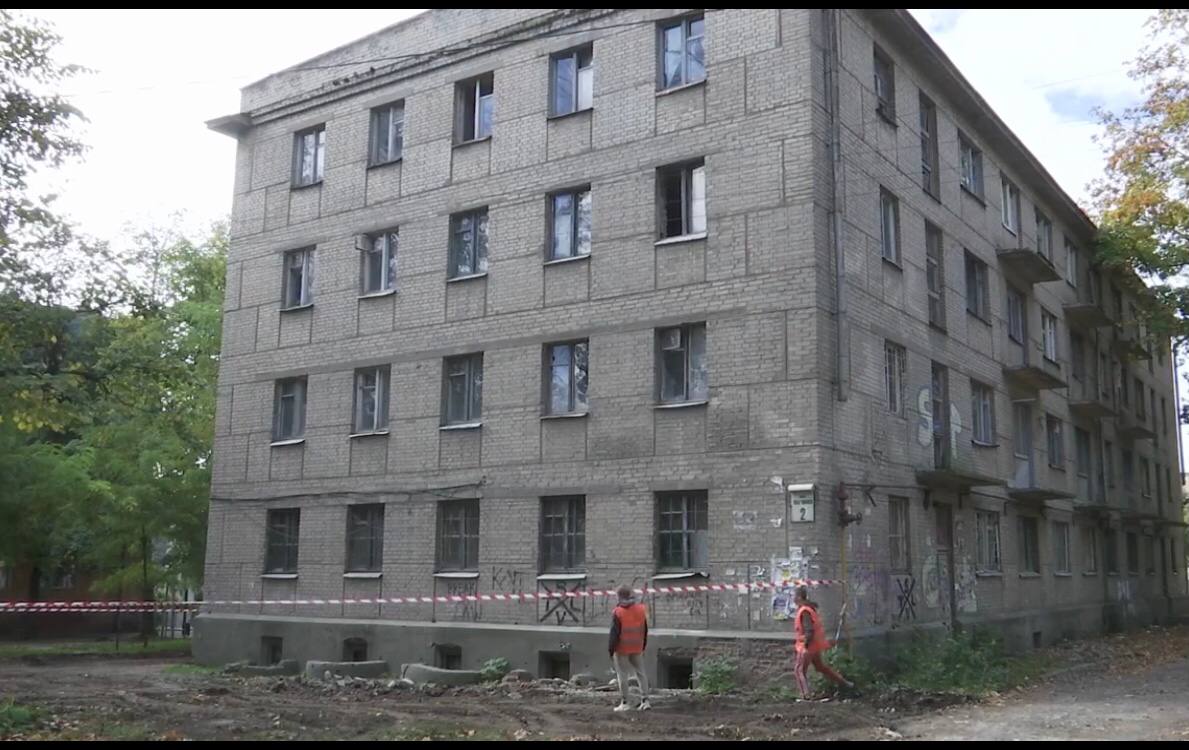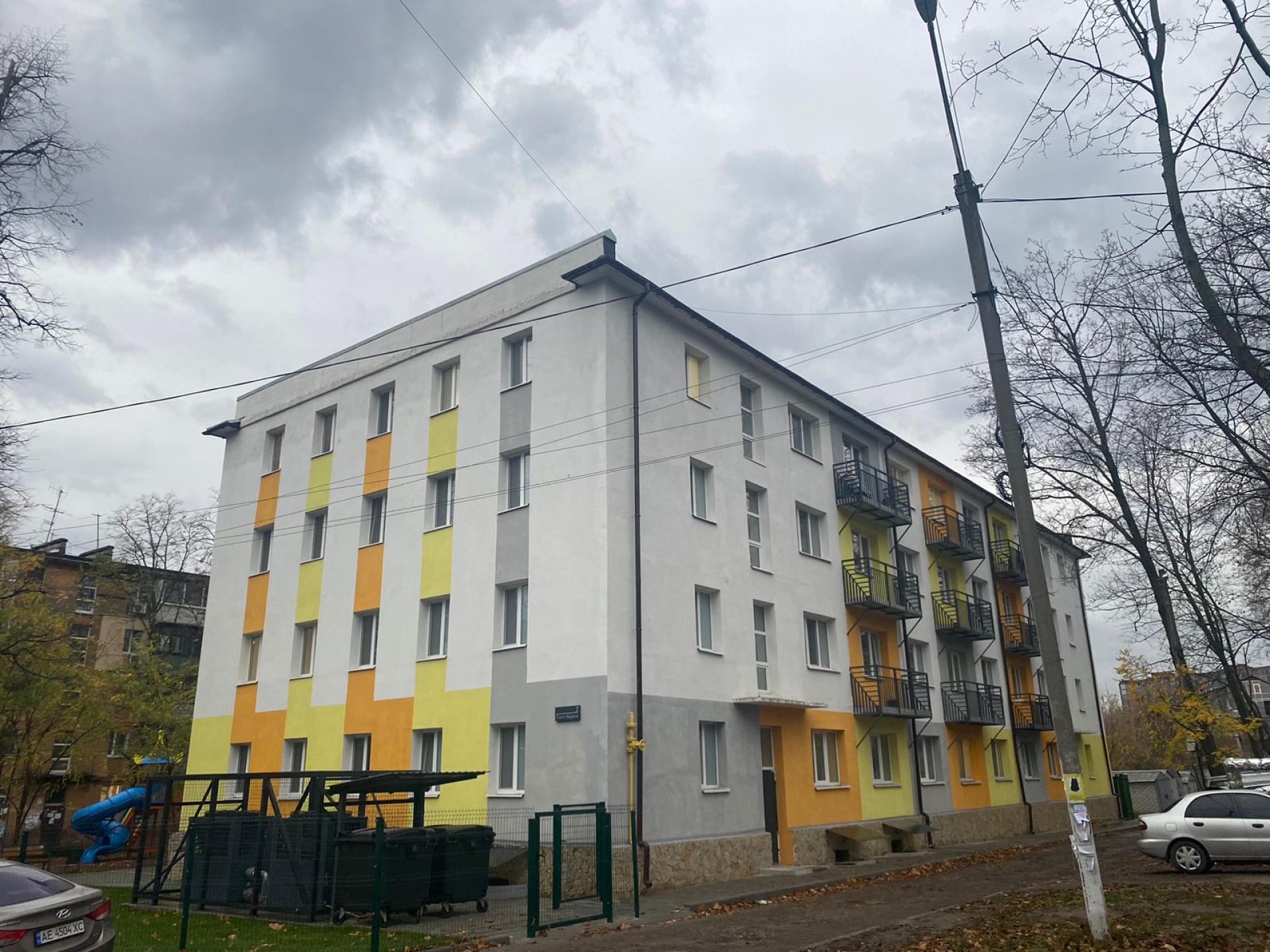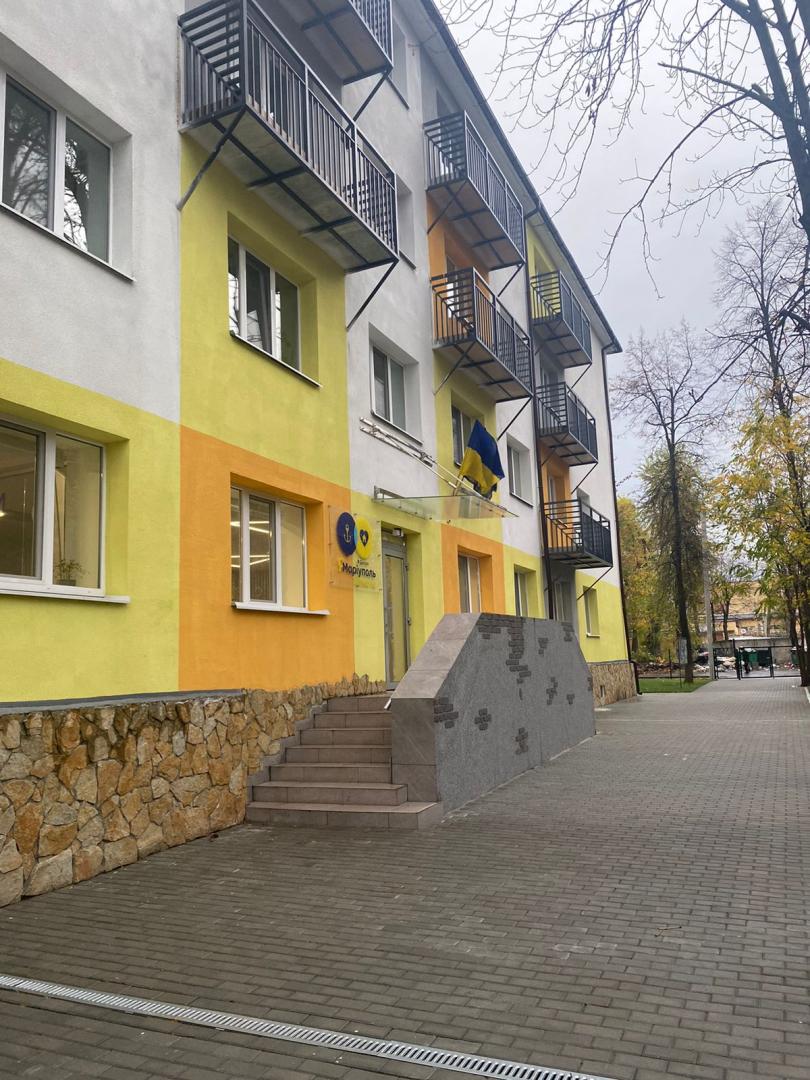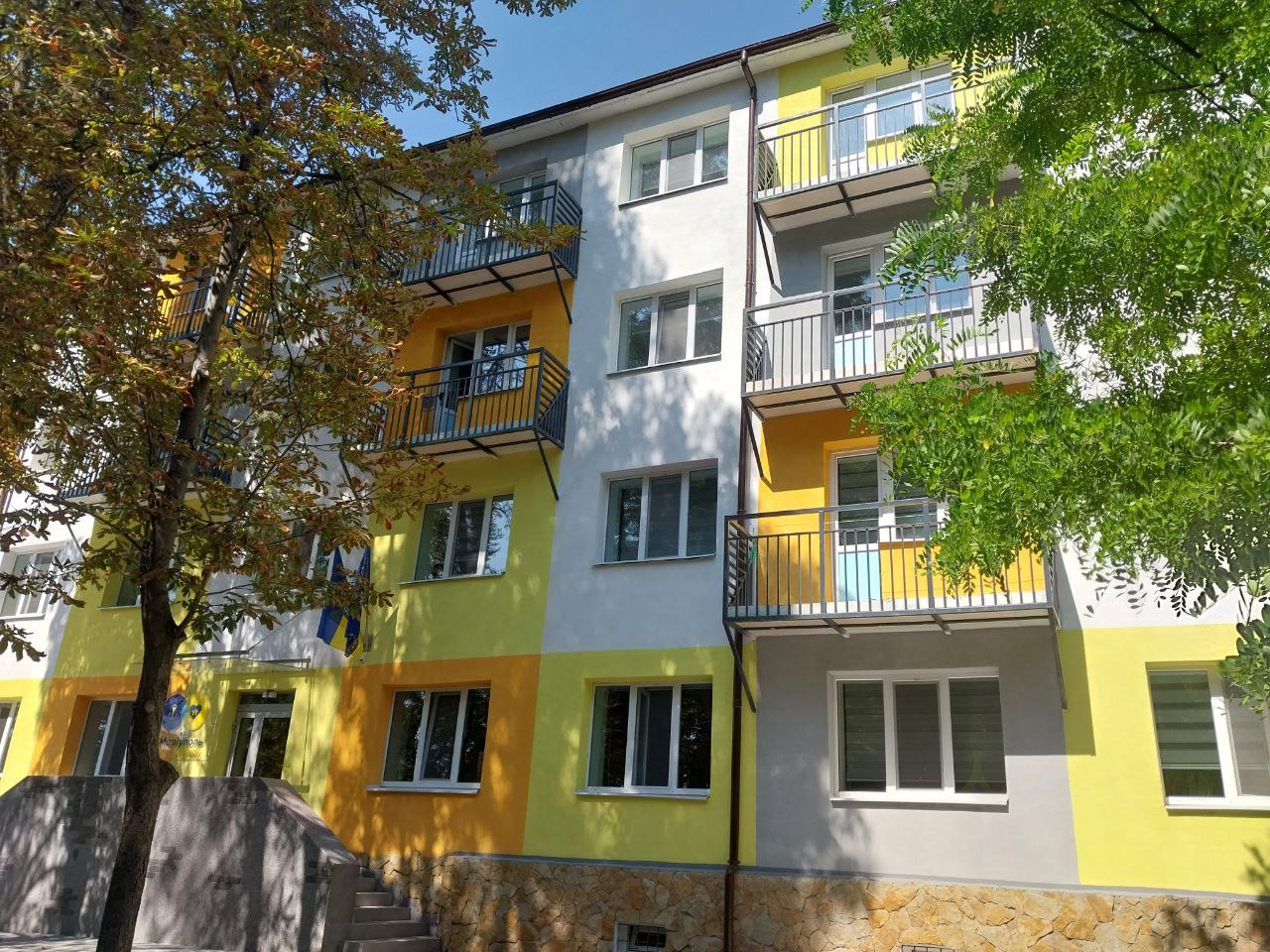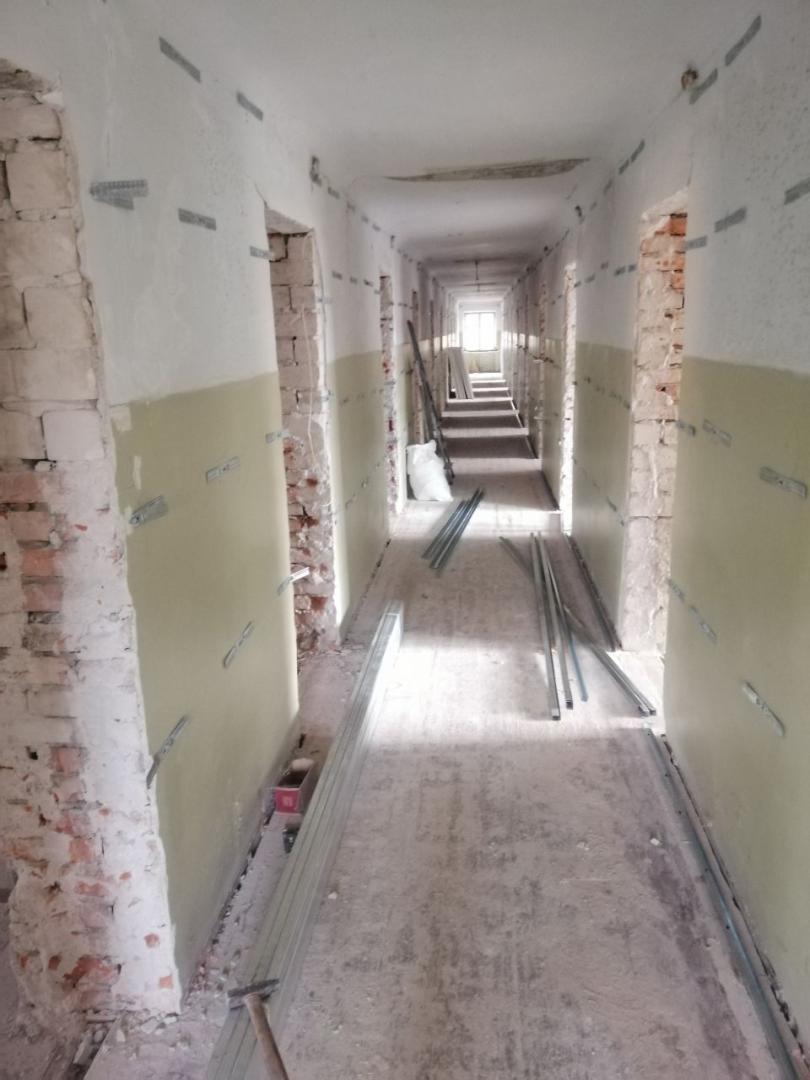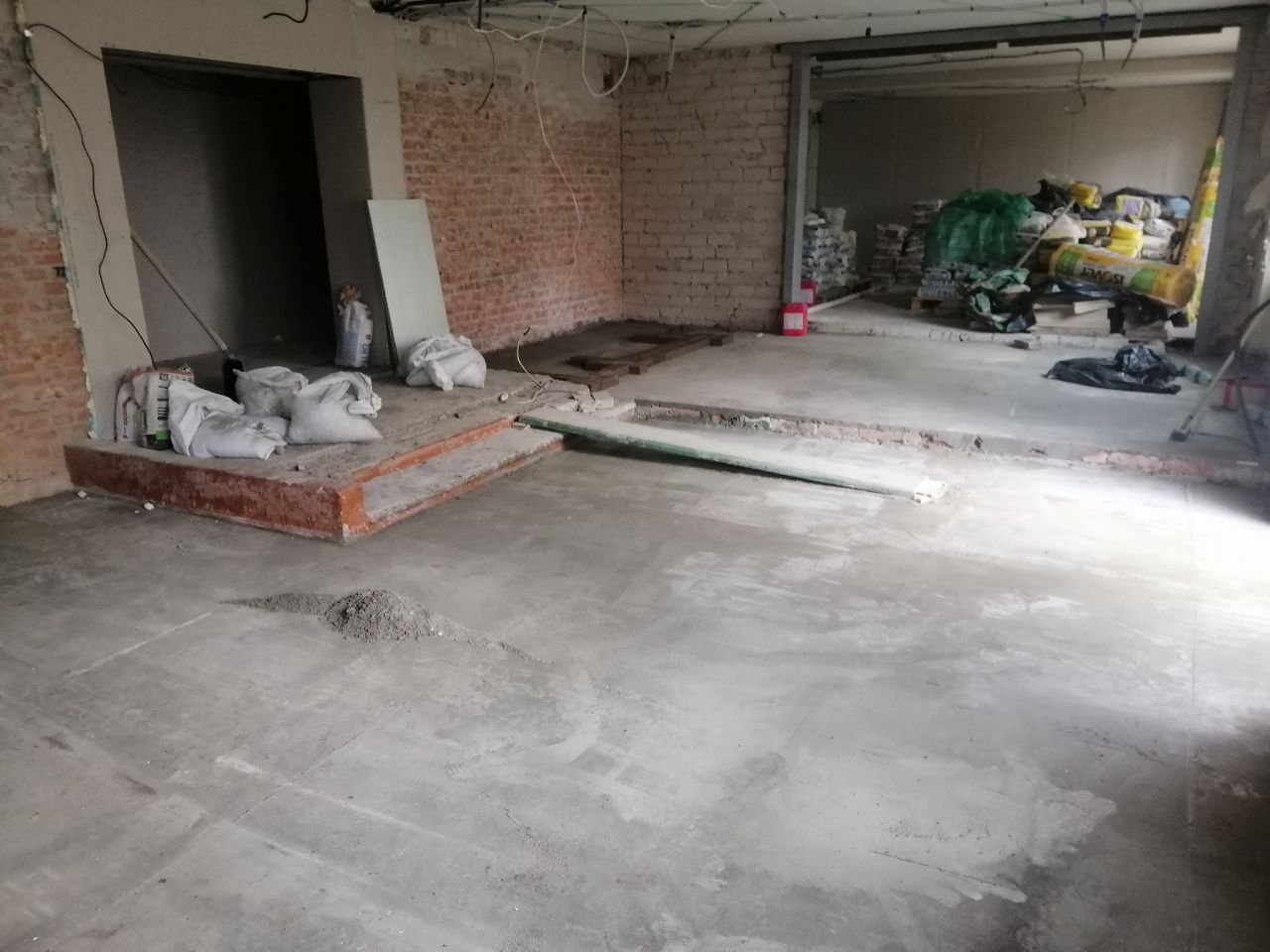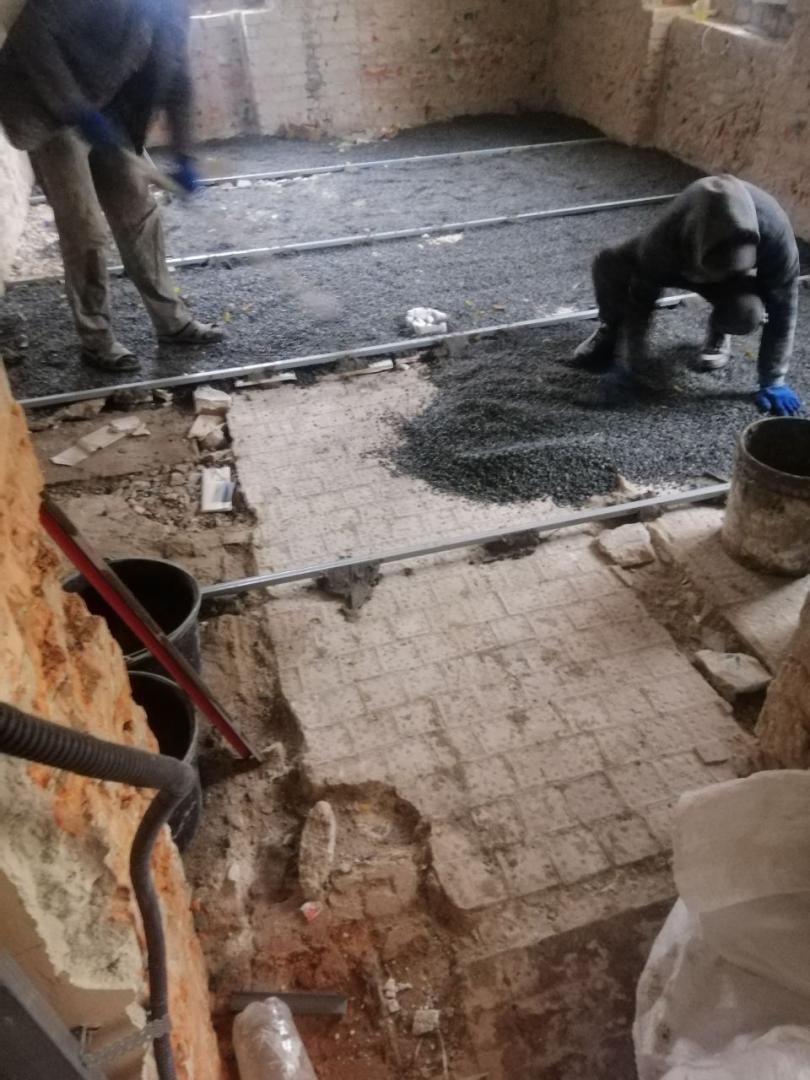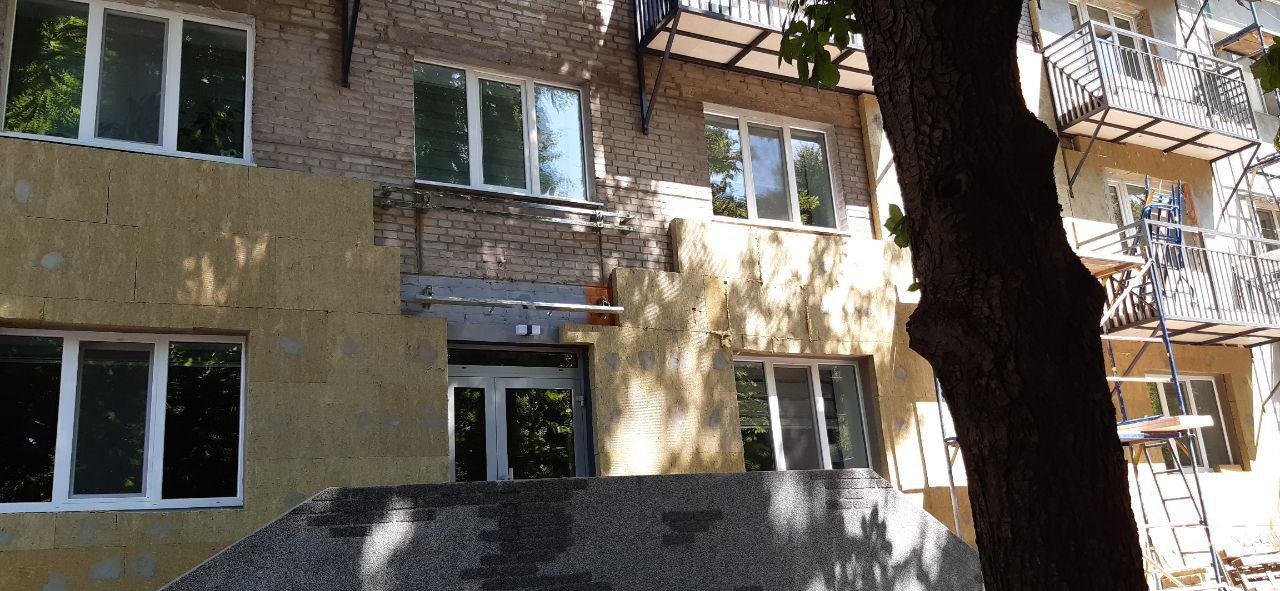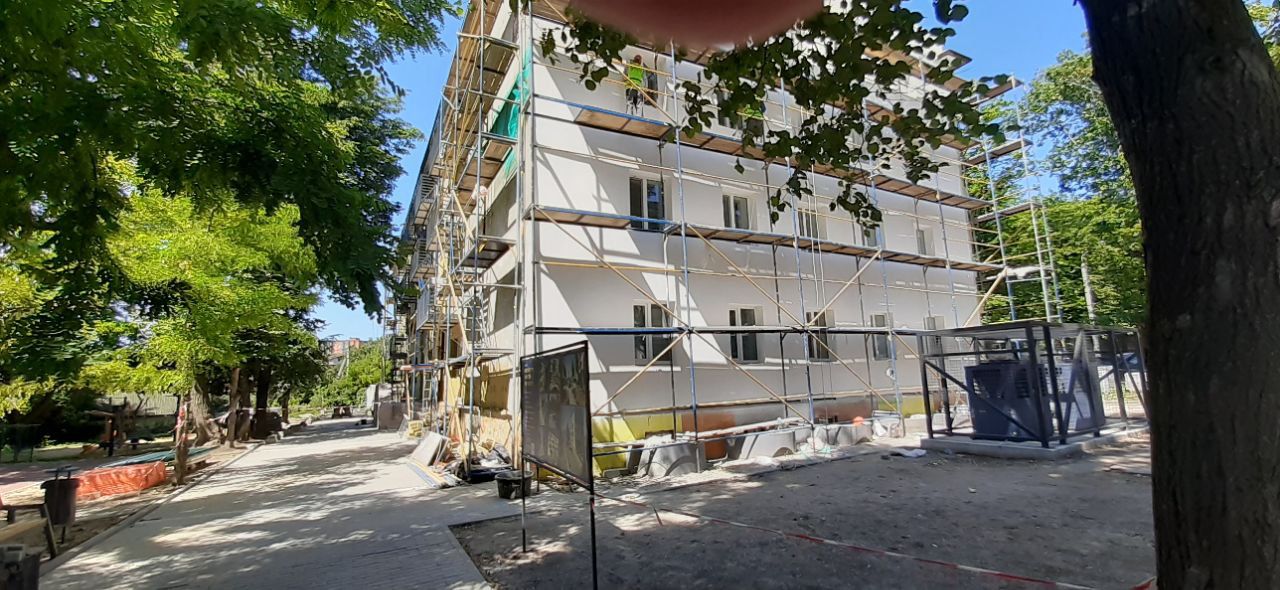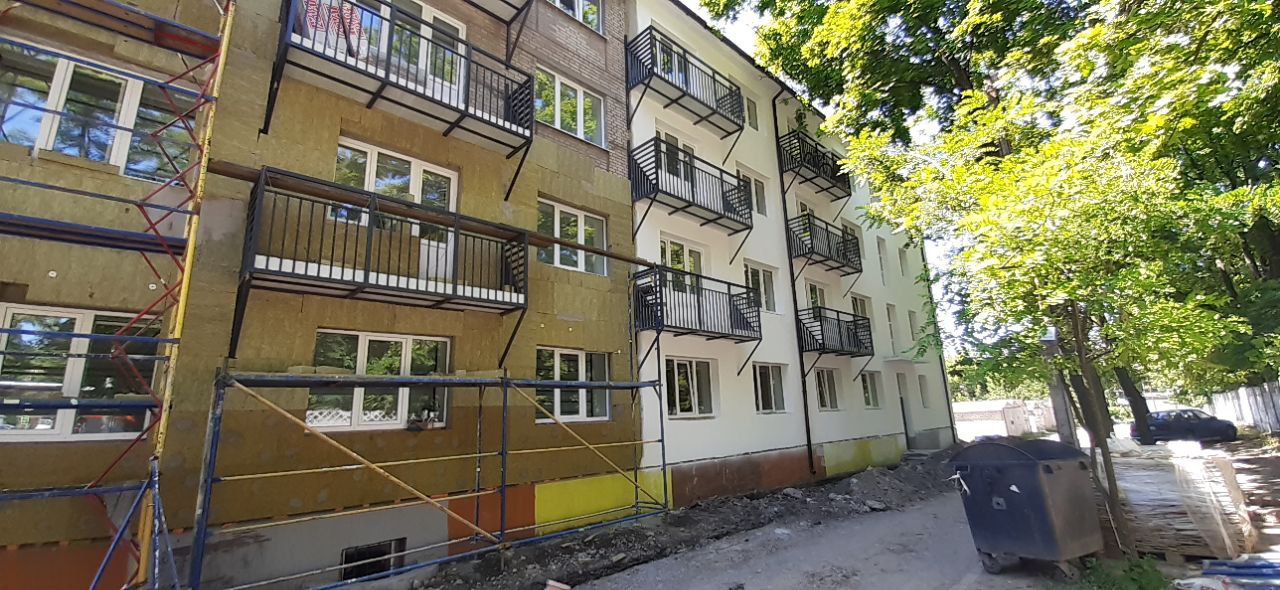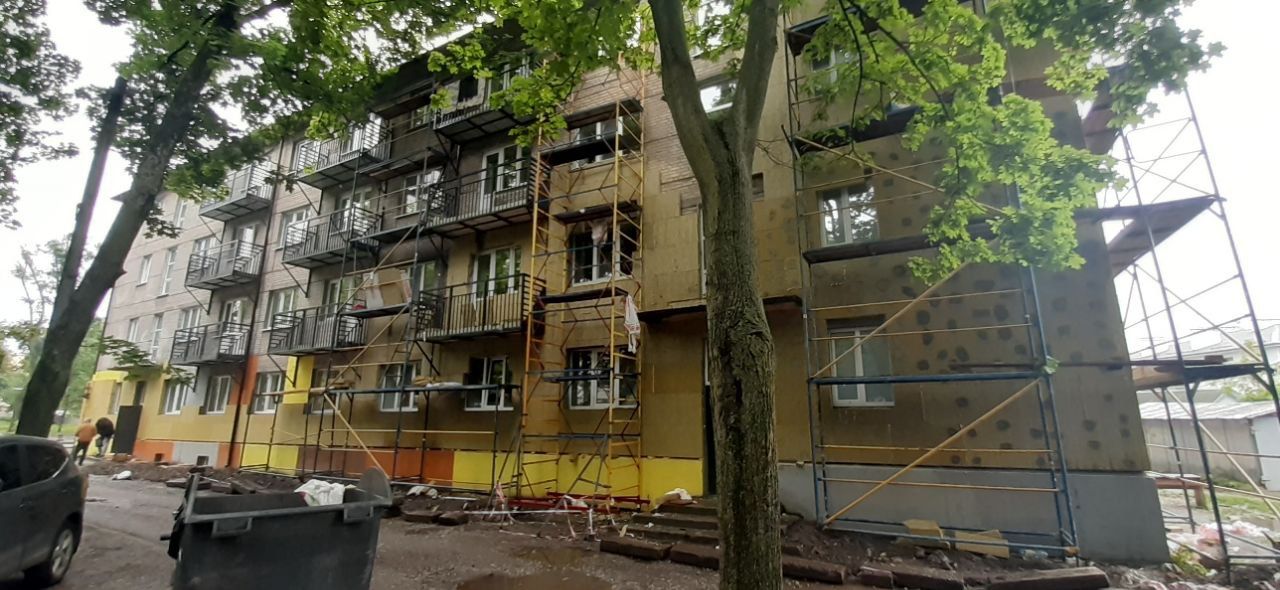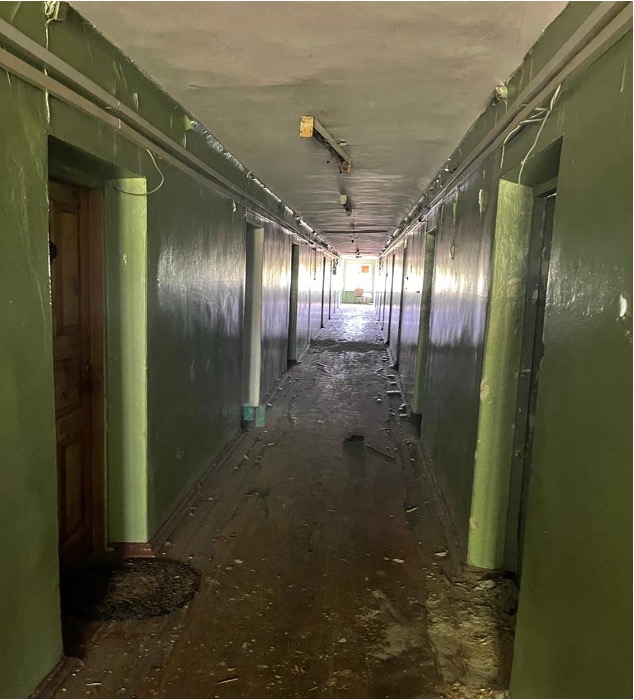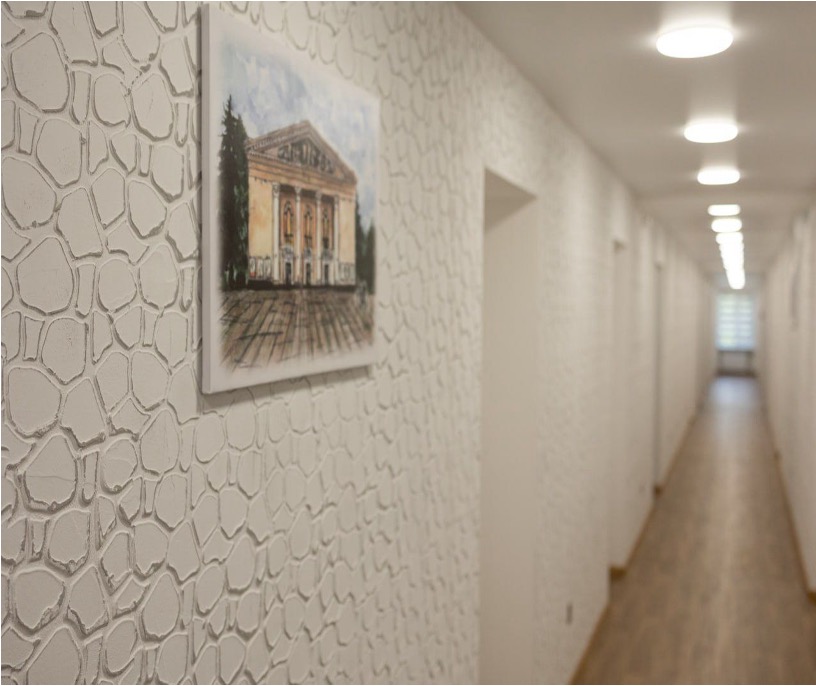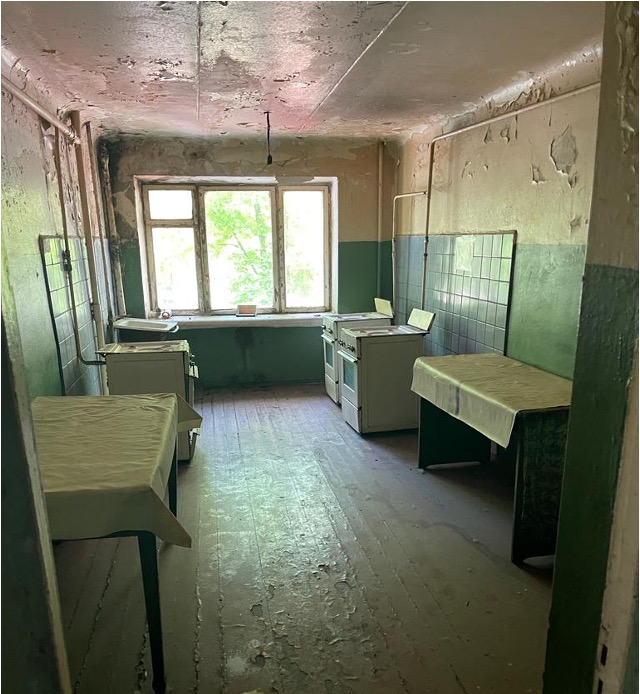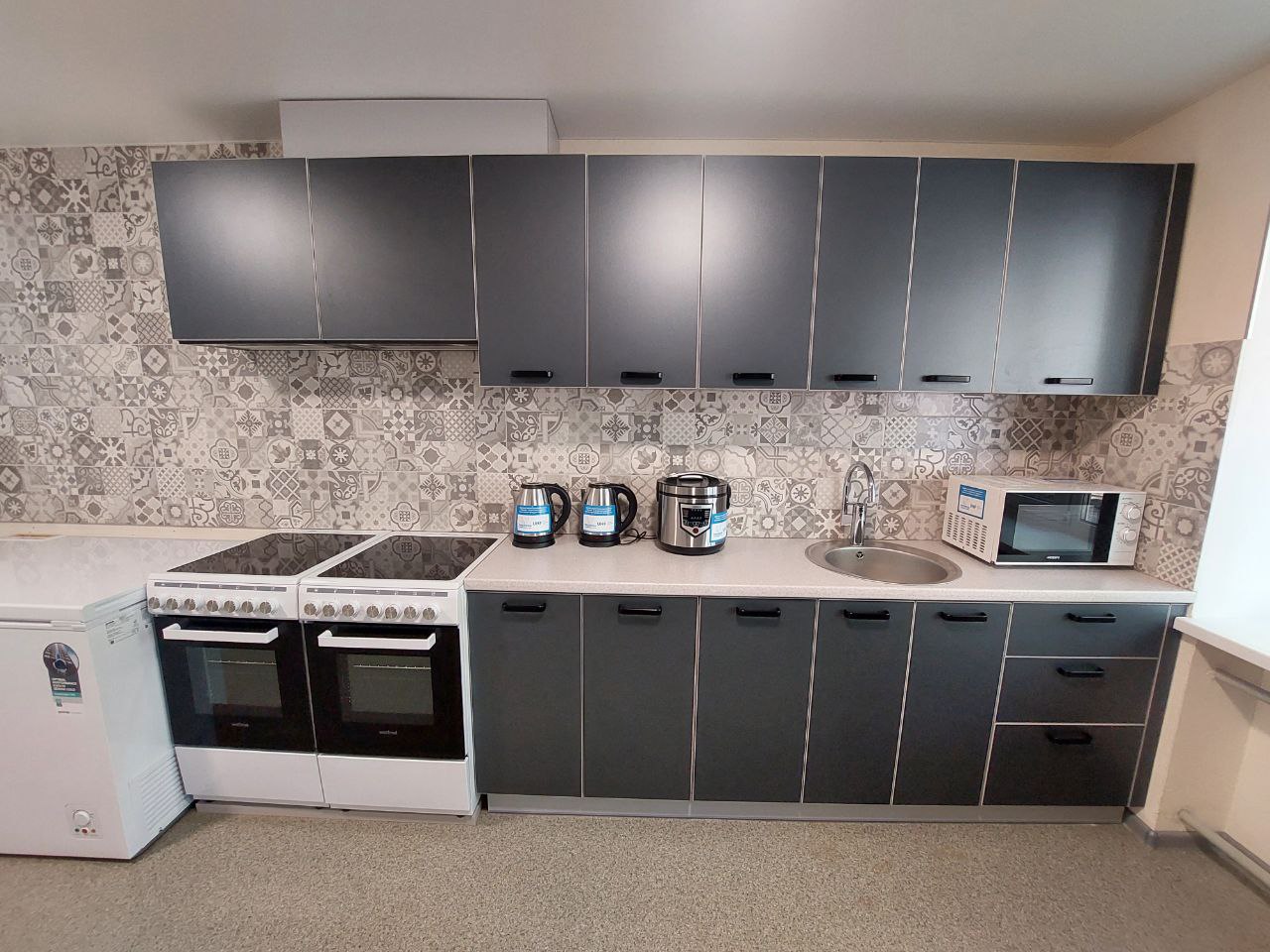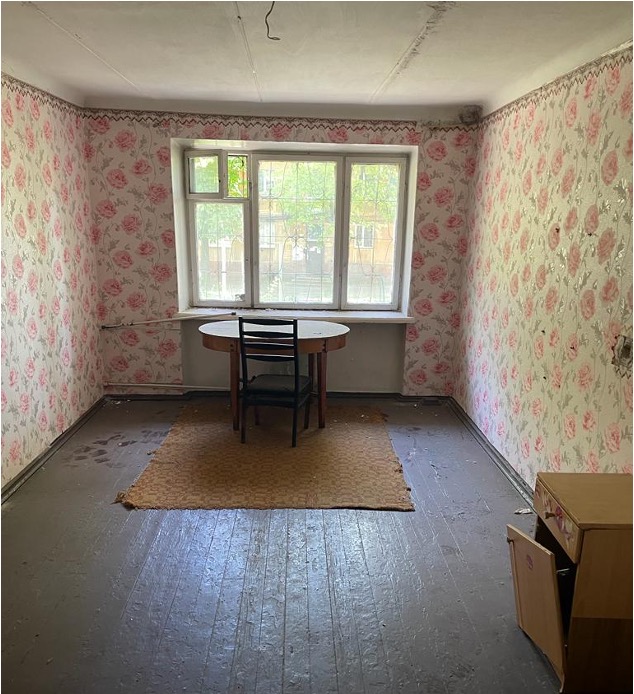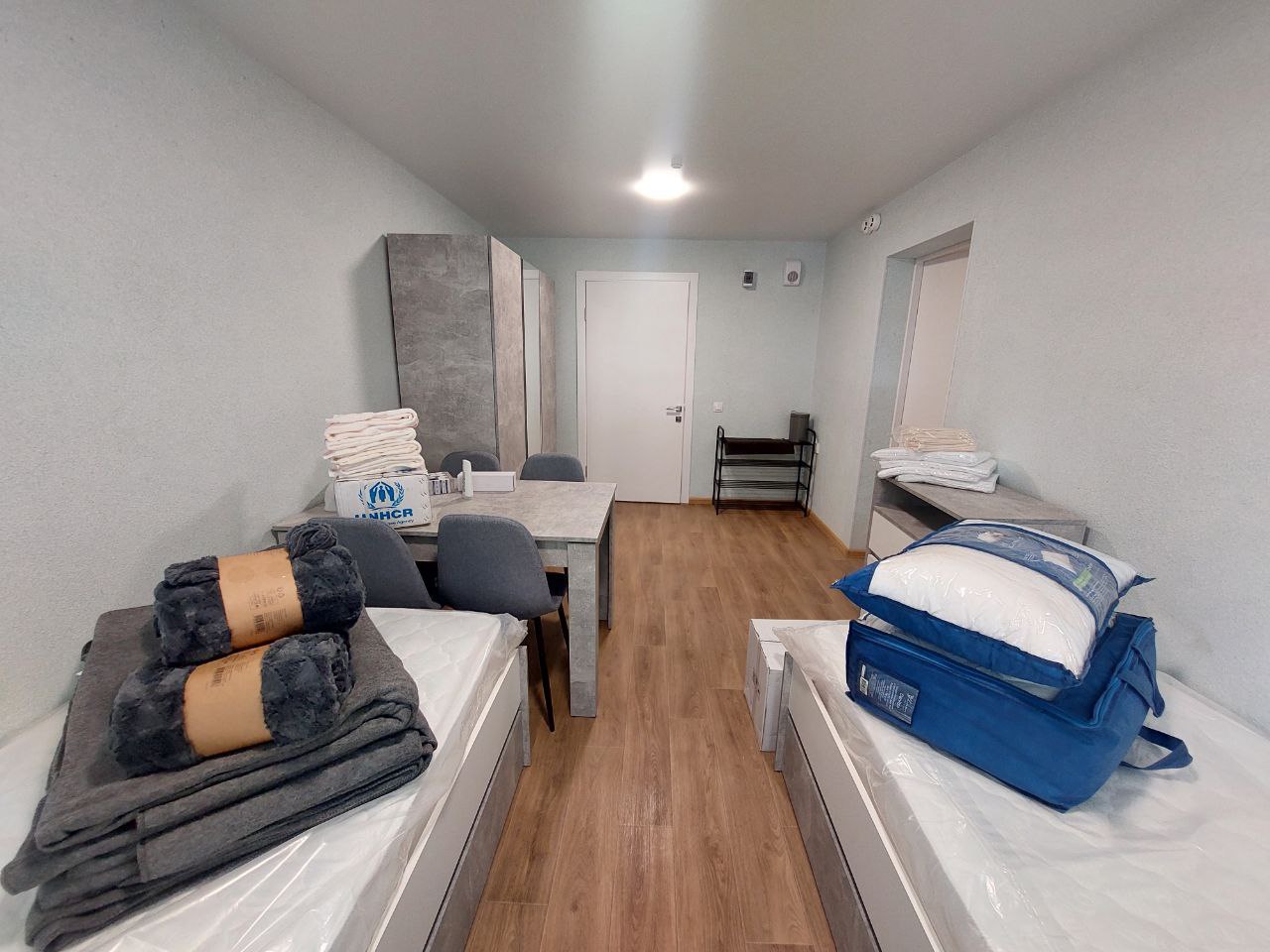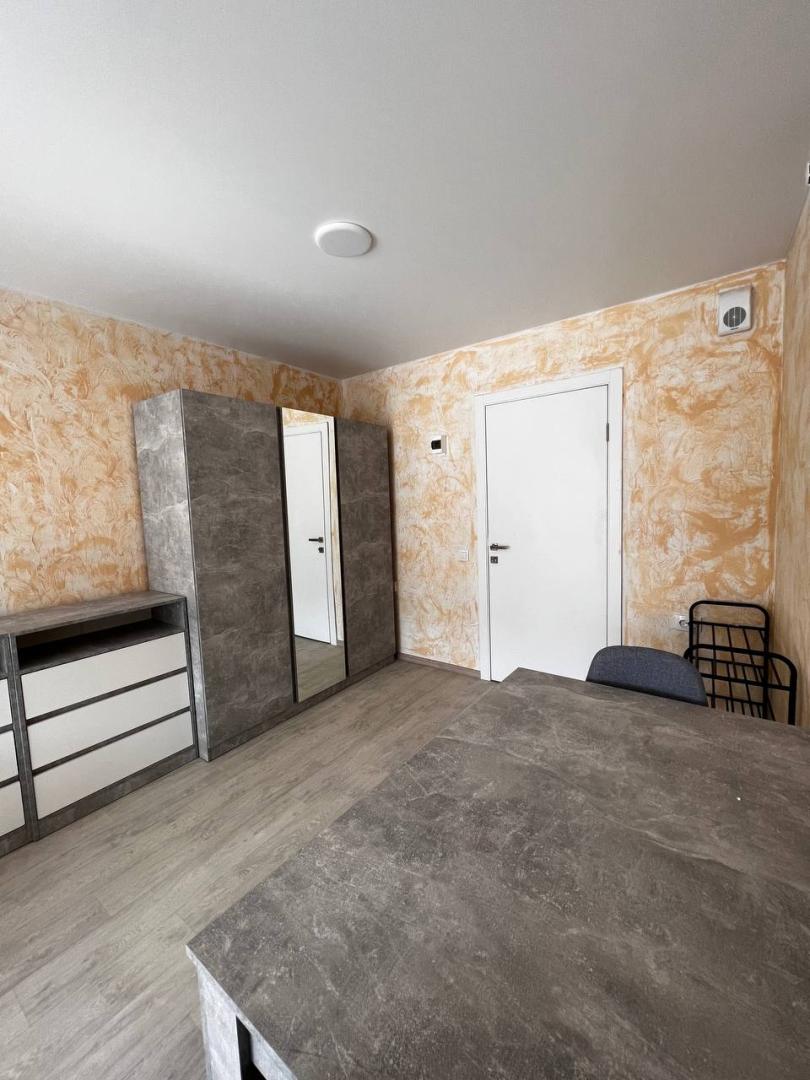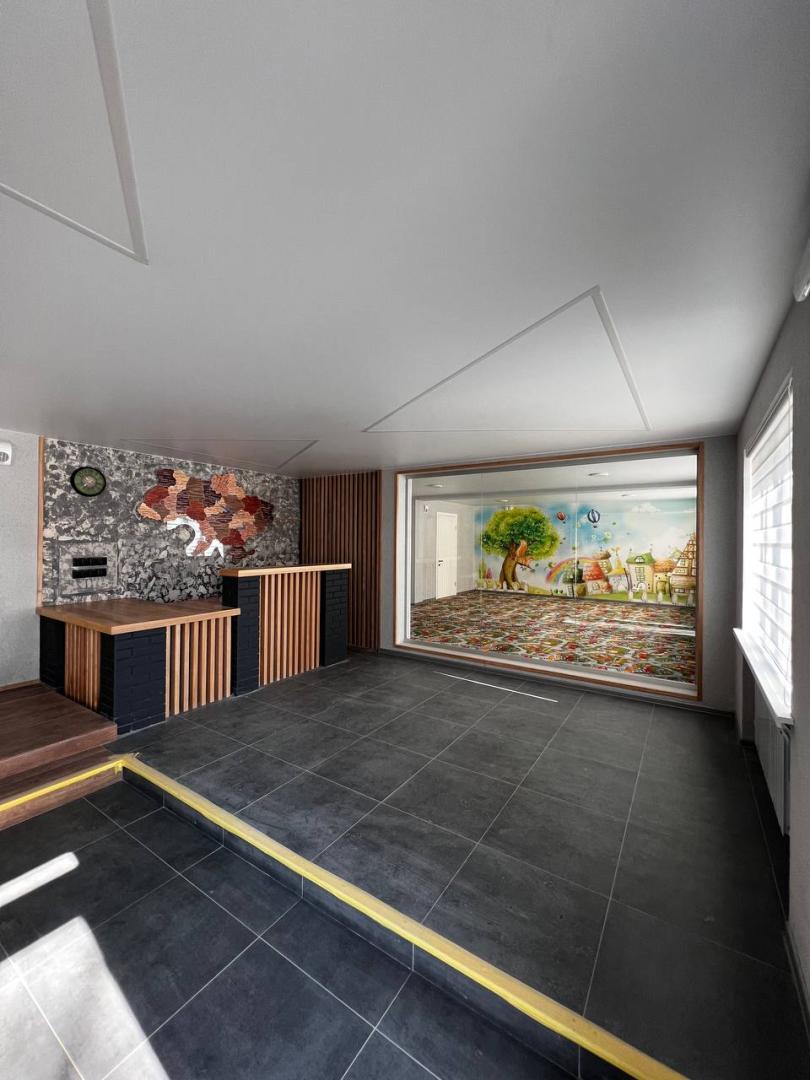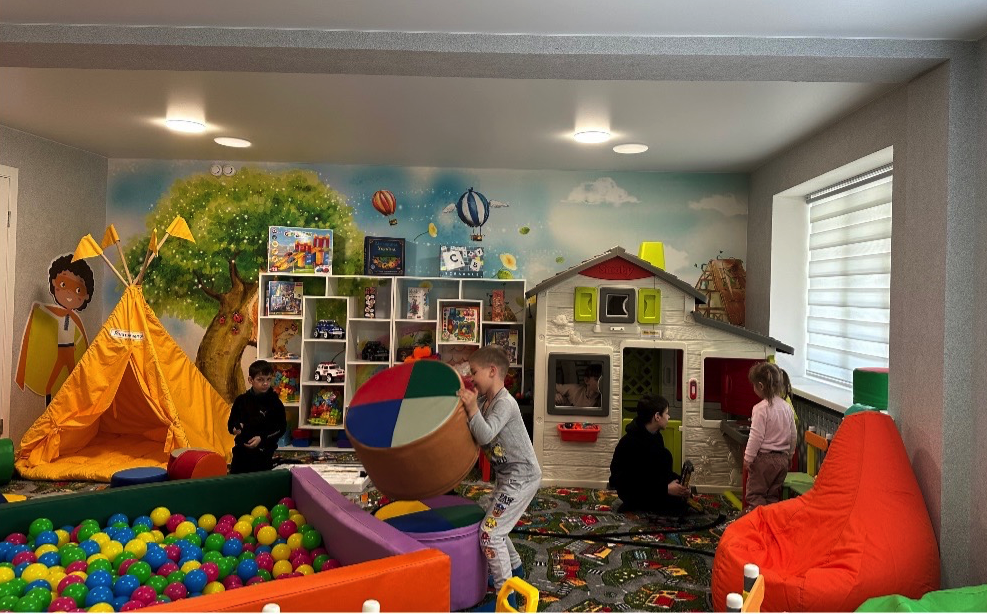I’Mariupol.Housing
Basic information
Project Title
I’Mariupol.Housing
Full project title
Social temporary housing for residents from the city of Mariupol-refugees from the russia occupation
Category
Prioritising the places and people that need it the most
Project Description
The project is the reconstruction of departmental housing in Ukrainian cities for the temporary accommodation of residents of the city of Mariupol - refugees. Housing is provided free of charge.As a pilot project in 2023, such a hostel has already been created in the city of Dnipro. 127 people settled in 35 separate rooms of this building. Comfortable living conditions have been created, a co-working space with everything you need. Each room is equipped with furniture and household appliances.
Geographical Scope
National
Project Region
Ukraine
Urban or rural issues
Mainly urban
Physical or other transformations
It refers to a physical transformation of the built environment (hard investment)
EU Programme or fund
No
Description of the project
Summary
The project is designed to respond to one of the main challenges facing modern Ukraine - the issue of housing refugees. Residents of Mariupol, who were forced to leave the city due to the Russian occupation, turned out to be virtually homeless. The goal of the project is to provide them with shelter, restore decent living comfort and restore a sense of community where people care for each other. Thus, the target group of the project is the socially vulnerable part of the refugees-residents of the city of Mariupol, who due to circumstances are unable to provide themselves with temporary housing and need external assistance. For this target group, another important goal of the project is realized - preservation of the social capital of Mariupol, i.e. preservation of connections, trust and mutual assistance between members of the community.
The project consists in developing a concept (idea), drawing up a methodology for implementation, attracting funding, implementing a pilot stage in one of the cities, studying the effect and expanding the project to other cities. The project aims to settle in a comfortable environment as many refugees as possible who belong to socially vulnerable groups.
The effective measure of the project is the number of comfortable dormitories in the cities of Ukraine, which will provide temporary housing for all evacuated residents of Mariupol who, under the conditions of compliance with the requirements, wish to settle in this type of housing.
Currently, the result of the project is the first stage - the reconstruction and opening of a hostel in the city of Dnipro for 35 families - that's more than 120 people. The four-story building is a corridor-type dormitory with separate rooms, a kitchen on the floor and two bathrooms with showers on the floor, there is a separate dining room.
During 2023-2024, it is planned to open 8 more hostels in 7 cities of Ukraine for 2.5 thousand people in need of social housing.
The project consists in developing a concept (idea), drawing up a methodology for implementation, attracting funding, implementing a pilot stage in one of the cities, studying the effect and expanding the project to other cities. The project aims to settle in a comfortable environment as many refugees as possible who belong to socially vulnerable groups.
The effective measure of the project is the number of comfortable dormitories in the cities of Ukraine, which will provide temporary housing for all evacuated residents of Mariupol who, under the conditions of compliance with the requirements, wish to settle in this type of housing.
Currently, the result of the project is the first stage - the reconstruction and opening of a hostel in the city of Dnipro for 35 families - that's more than 120 people. The four-story building is a corridor-type dormitory with separate rooms, a kitchen on the floor and two bathrooms with showers on the floor, there is a separate dining room.
During 2023-2024, it is planned to open 8 more hostels in 7 cities of Ukraine for 2.5 thousand people in need of social housing.
Key objectives for sustainability
One of the goals of the project is compliance with the principle of sustainability regarding the ecosystem of communities and cities where social hostels are located. The reconstruction of departmental buildings should be done in a way that should only improve the interaction with the environment in the recipient community of both the reconstructed buildings and their residents.
Social housing built according to the project meets all modern European standards for the use of energy-efficient practices, which are as follows:
- - use of safe and energy-saving materials when renovating buildings, including insulation of the building's facade and foundation;
- efficiency of water use;
- efficiency of electricity use;
- implementation of green landscaping of the adjacent territory;
- health and comfort of residents.
These goals were achieved by implementing the following measures:
- Exterior insulation of the facade with 100 mm thick mineral insulation. The total area of insulation was 900 m2.
- Waterproofing of the basement premises is completed
- Complete replacement of wooden windows with energy-saving metal-plastic ones in the amount of 113 units.
- Two heat pumps with a thermal capacity of 52 kW each with a consumption of 12.1 kW were installed for space heating and hot water production.
- Energy-saving LED lighting lamps are installed
- Landscaping of the adjacent territory with an area of 500 m2 has been completed; preservation of natural shade by planting 10 new trees and cultivating 30 trees
Social housing built according to the project meets all modern European standards for the use of energy-efficient practices, which are as follows:
- - use of safe and energy-saving materials when renovating buildings, including insulation of the building's facade and foundation;
- efficiency of water use;
- efficiency of electricity use;
- implementation of green landscaping of the adjacent territory;
- health and comfort of residents.
These goals were achieved by implementing the following measures:
- Exterior insulation of the facade with 100 mm thick mineral insulation. The total area of insulation was 900 m2.
- Waterproofing of the basement premises is completed
- Complete replacement of wooden windows with energy-saving metal-plastic ones in the amount of 113 units.
- Two heat pumps with a thermal capacity of 52 kW each with a consumption of 12.1 kW were installed for space heating and hot water production.
- Energy-saving LED lighting lamps are installed
- Landscaping of the adjacent territory with an area of 500 m2 has been completed; preservation of natural shade by planting 10 new trees and cultivating 30 trees
Key objectives for aesthetics and quality
The social housing in which the evacuated residents of Mariupol settled must meet the requirements for comfort and coziness for both adults and children. Residents who settled in this hostel should feel cared for people and pay attention to comfort. This was achieved through careful selection of design proposals, materials and contractors. The project also provided residents with a children's playground outside and a storage room inside (estimated capacity - up to 200 people), because currently all cities of Ukraine suffer from Russian shelling. The storage room is located in the basement and has ventilation, an electric generator, sleeping places, a shower and a toilet.
Currently, a four-story dormitory in the city of Dnipro with a total living area of 1093.4 m2 serves as an example of a completed pilot project of social housing. The building contains 35 apartments, including 2-room apartments - 17 units, 1-room apartments - 18 units. According to the building regulations, the occupancy density was 8 m2 per 1 person. The scope of work consisted of the ongoing repair of the building, the implementation of communications, the arrangement of rooms and shelters, the improvement of the territory, the creation of a children's play area. The outer area of the hostel is equipped with a mini park for recreation, which includes 12 benches, a lawn of 500 m2 with an automatic irrigation system. 10 new trees were planted and 30 trees that were already small were cultivated. Next to the square, there is a children's playground with an area of 40 m2 for children up to 12 years old. The project can be considered exemplary for other communities of Ukraine that accept refugees from temporarily occupied territories, as it solves a whole set of issues faced by forced migrants. This is the presence of housing, its comfort, safety, provision of everything necessary for children, elderly people, people whose health needs additional attention.
Currently, a four-story dormitory in the city of Dnipro with a total living area of 1093.4 m2 serves as an example of a completed pilot project of social housing. The building contains 35 apartments, including 2-room apartments - 17 units, 1-room apartments - 18 units. According to the building regulations, the occupancy density was 8 m2 per 1 person. The scope of work consisted of the ongoing repair of the building, the implementation of communications, the arrangement of rooms and shelters, the improvement of the territory, the creation of a children's play area. The outer area of the hostel is equipped with a mini park for recreation, which includes 12 benches, a lawn of 500 m2 with an automatic irrigation system. 10 new trees were planted and 30 trees that were already small were cultivated. Next to the square, there is a children's playground with an area of 40 m2 for children up to 12 years old. The project can be considered exemplary for other communities of Ukraine that accept refugees from temporarily occupied territories, as it solves a whole set of issues faced by forced migrants. This is the presence of housing, its comfort, safety, provision of everything necessary for children, elderly people, people whose health needs additional attention.
Key objectives for inclusion
The project is aimed, first of all, at persons who are the most vulnerable. These are families with many children and families in which there are persons with disabilities, pregnant women, pensioners, prisoners of war, participants in the war, relatives of those killed in military operations. In the conditions in which the state of Ukraine found itself, all basic social and household goods for its citizens became less accessible. Therefore, the task of the project was also to bring basic social services closer to the residents of the hostel - these are educators for children, psychologists for children and adults, special rooms with equipment for people with disabilities.
The exemplary nature of the project from the point of view of inclusion is that it aims not to leave out any special needs of the residents. Accessibility to what is necessary is the main priority when implementing the idea of a social dormitory. In addition, the combination of Mariupol residents under one residence strengthens their sense of community and unity. Adults and children, living together in the same community as they did in Mariupol, become more resilient and less vulnerable as a result.
For example, a dormitory located in the city of Dnipro is equipped with a ramp for the entrance to the first floor for residents with reduced mobility. Also, a toilet room with a shower has been adapted for residents with reduced mobility, and 4 rooms on the first floor of the dormitory have been allocated.
The exemplary nature of the project from the point of view of inclusion is that it aims not to leave out any special needs of the residents. Accessibility to what is necessary is the main priority when implementing the idea of a social dormitory. In addition, the combination of Mariupol residents under one residence strengthens their sense of community and unity. Adults and children, living together in the same community as they did in Mariupol, become more resilient and less vulnerable as a result.
For example, a dormitory located in the city of Dnipro is equipped with a ramp for the entrance to the first floor for residents with reduced mobility. Also, a toilet room with a shower has been adapted for residents with reduced mobility, and 4 rooms on the first floor of the dormitory have been allocated.
Results in relation to category
The results of this project are the provision of temporary housing in social hostels for about 2.5 thousand evacuated Mariupol residents during the period when the city of Mariupol is occupied by the armed forces of the Russian Federation and for a certain period after the de-occupation, when a safe environment will be restored (restoration of power, elimination of mine pollution, provision of goods first necessity, social services). Dormitory residents are also direct beneficiaries of charitable and humanitarian aid, which can be obtained directly or in the form of grants.
Indirect beneficiaries are residents of the surrounding areas, who can also use recreation areas and playgrounds. Also, in the case of missile attacks by the armed forces of the Russian Federation on Ukrainian cities, bomb shelters installed in dormitories can be used by residents of nearby buildings or a passage that was nearby at the time of the attack.
Also, indirect beneficiaries of the project are the communities and institutions that will be left with the reconstructed dormitory buildings. In case of interest, the state as a subject of social policy can also scale this project and use it as a model.
Indirect beneficiaries are residents of the surrounding areas, who can also use recreation areas and playgrounds. Also, in the case of missile attacks by the armed forces of the Russian Federation on Ukrainian cities, bomb shelters installed in dormitories can be used by residents of nearby buildings or a passage that was nearby at the time of the attack.
Also, indirect beneficiaries of the project are the communities and institutions that will be left with the reconstructed dormitory buildings. In case of interest, the state as a subject of social policy can also scale this project and use it as a model.
How Citizens benefit
Currently, 22 I'Mariupol aid centers are deployed in Ukraine, on the basis of which humanitarian, social and other assistance is provided to the evacuated residents of Mariupol. These centers serve as centers of communication of Mariupol residents and expression of opinions. With the help of the centers, the collection of proposals of Mariupol residents regarding needs for social housing, wishes for housing, and additional services was established.
As a result of such discussions, a map of needs is compiled and summarized, with the help of which a certain standard is created for the dormitories under construction and those that are planned. The customer of the project receives information about the gender composition of applicants for social housing, their state of health, special needs related to this.
During the operation of the housing, feedback is also established with the residents, which provides an opportunity to constantly improve the service and have information about the current needs of the residents.
As a result of such discussions, a map of needs is compiled and summarized, with the help of which a certain standard is created for the dormitories under construction and those that are planned. The customer of the project receives information about the gender composition of applicants for social housing, their state of health, special needs related to this.
During the operation of the housing, feedback is also established with the residents, which provides an opportunity to constantly improve the service and have information about the current needs of the residents.
Physical or other transformations
It refers to a physical transformation of the built environment (hard investment)
Innovative character
The innovative nature of the project consists in the fact that the approach introduced in it regarding the settlement of refugees within the framework of the country receiving them is a unique experience. Unfortunately, such experience is caused by the most terrible event - war, but it is very productive.
First of all, this is the settlement of refugees from one community in several other communities of Ukraine. However, within the framework of the project, it became possible to carry out reconstruction and give new life to departmental buildings, which at the time of the implementation of the project were not needed for their original purpose. The project became useful not only for the refugees, but also for those communities that accepted them - because after the end of the war and the de-occupation of Ukrainian cities, these buildings will remain the property of the host communities. These buildings will stop the negative impact on the design of the cities of their location, will not require costs for their destruction and disposal of construction waste.
After the end of the war and the return of the people of Mariupol to their city, the renovated buildings equipped for dormitories can continue to fulfill a new function in their communities.
This concept can be implemented in any country under similar circumstances.
First of all, this is the settlement of refugees from one community in several other communities of Ukraine. However, within the framework of the project, it became possible to carry out reconstruction and give new life to departmental buildings, which at the time of the implementation of the project were not needed for their original purpose. The project became useful not only for the refugees, but also for those communities that accepted them - because after the end of the war and the de-occupation of Ukrainian cities, these buildings will remain the property of the host communities. These buildings will stop the negative impact on the design of the cities of their location, will not require costs for their destruction and disposal of construction waste.
After the end of the war and the return of the people of Mariupol to their city, the renovated buildings equipped for dormitories can continue to fulfill a new function in their communities.
This concept can be implemented in any country under similar circumstances.
Disciplines/knowledge reflected
Elements of the following disciplines are implemented within the framework of this project:
- town planning and construction;
- energy efficiency;
- sociology;
- psychology;
- pedagogy;
- medicine.
The combination of the specified disciplines at different stages of project implementation provides an opportunity to obtain as a final result satisfaction of the needs of refugees not only in physical comfort, but also in a wider range of needs related to psychological state, health and, as a result, overcoming depressive states , related to the war and occupation of the native city.
- town planning and construction;
- energy efficiency;
- sociology;
- psychology;
- pedagogy;
- medicine.
The combination of the specified disciplines at different stages of project implementation provides an opportunity to obtain as a final result satisfaction of the needs of refugees not only in physical comfort, but also in a wider range of needs related to psychological state, health and, as a result, overcoming depressive states , related to the war and occupation of the native city.
Methodology used
The approach to project implementation consists of the gradual implementation of the following stages:
1. Determination of the number of residents of Mariupol who were evacuated to other cities of Ukraine and, according to the criteria, should apply for such temporary housing.
2. Determination of the possibility of reconstruction of buildings in these cities for arranging dormitories - availability of buildings, possibility of financing.
3. The process of reconstruction of dormitories. Public coverage of stages and completion of reconstruction.
4. Development of a transparent system of criteria by which applicants for temporary housing are evaluated. Approval and publication of such criteria.
5. Receiving applications for temporary housing and relevant documents from applicants, carrying out selection within the framework of available housing.
6. Settlement of selected residents; implementation of operational work related to the maintenance of dormitory buildings and the registration of residents.
1. Determination of the number of residents of Mariupol who were evacuated to other cities of Ukraine and, according to the criteria, should apply for such temporary housing.
2. Determination of the possibility of reconstruction of buildings in these cities for arranging dormitories - availability of buildings, possibility of financing.
3. The process of reconstruction of dormitories. Public coverage of stages and completion of reconstruction.
4. Development of a transparent system of criteria by which applicants for temporary housing are evaluated. Approval and publication of such criteria.
5. Receiving applications for temporary housing and relevant documents from applicants, carrying out selection within the framework of available housing.
6. Settlement of selected residents; implementation of operational work related to the maintenance of dormitory buildings and the registration of residents.
How stakeholders are engaged
Implementation of the project would be very difficult without the active participation of many parties. The project was initiated by the municipality of Mariupol, which resumed its activities in the controlled territory of Ukraine, led by the mayor Vadym Boychenko. At the state level, the project was launched with the assistance of the Head of the Donetsk Military Administration, Pavlo Kyrilenko. The mayor of Dnipro Borys Filatov joined the implementation of the project. The premises for the dormitory were provided by the Dnipro State Agrarian and Economic University. The French government, the International Organization for Migration (IOM), as well as the Rinat Akhmetov Foundation and the SCM Limited company also joined the project.
Also, various donors can join the project to help the residents of the dormitories with the payment of utility bills, clothes, and other household items. For example, the Charitable Organization "Charitable Fund "Adventist Aid and Development Agency in Ukraine" provided charitable funds to compensate residents of a hostel in Dnipro for utility bills.
The first dormitory according to the project was equipped with funds from the budget of the city of Mariupol. At the next stages, the Government of France, the Rinat Akhmetov Foundation and the SCM Limited company are co-financing various stages of the project. The International Organization for Migration carries out work planning, work with contractors and suppliers, operational control of project implementation. The municipality of Mariupol, state authorities are the project's customers and the institutions that finally accept the implementation of the project.
Such multi-level involvement makes it impossible to perform substandard work, gives the project transparency and controllability to a wide range of observers.
Also, various donors can join the project to help the residents of the dormitories with the payment of utility bills, clothes, and other household items. For example, the Charitable Organization "Charitable Fund "Adventist Aid and Development Agency in Ukraine" provided charitable funds to compensate residents of a hostel in Dnipro for utility bills.
The first dormitory according to the project was equipped with funds from the budget of the city of Mariupol. At the next stages, the Government of France, the Rinat Akhmetov Foundation and the SCM Limited company are co-financing various stages of the project. The International Organization for Migration carries out work planning, work with contractors and suppliers, operational control of project implementation. The municipality of Mariupol, state authorities are the project's customers and the institutions that finally accept the implementation of the project.
Such multi-level involvement makes it impossible to perform substandard work, gives the project transparency and controllability to a wide range of observers.
Global challenges
The project solves such global challenges as forced migration caused by armed conflicts, natural disasters, etc.
Learning transferred to other parties
The project is aimed at meeting the needs of refugees who need temporary housing. This project can be implemented on the territory of the community of any European country or in any city of Ukraine in which there are buildings of this type. The group of beneficiaries can be not only refugees as a result of armed conflicts, but also natural disasters, man-made disasters, etc.
Abandoned municipal or departmental buildings, for the reconstruction of which there was no demand under normal conditions, can be used under the conditions of emergency situations. Depending on the specific situation, the project may include not only a comfortable place for temporary stay, but also the services of psychologists, doctors, childcare workers, etc.
Abandoned municipal or departmental buildings, for the reconstruction of which there was no demand under normal conditions, can be used under the conditions of emergency situations. Depending on the specific situation, the project may include not only a comfortable place for temporary stay, but also the services of psychologists, doctors, childcare workers, etc.
Keywords
Shelter
Reconstruction
Refugees
Care
Unity

